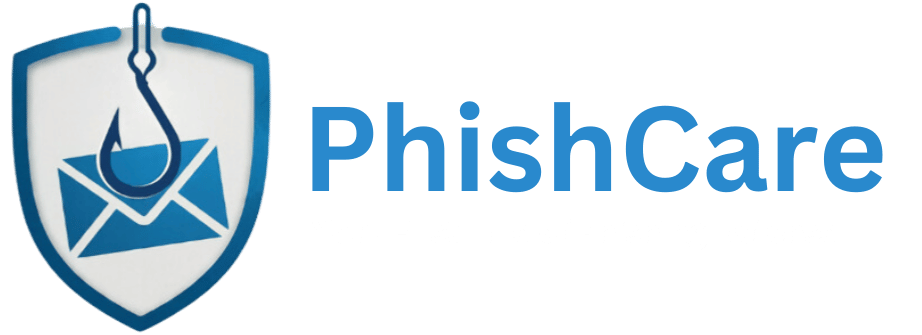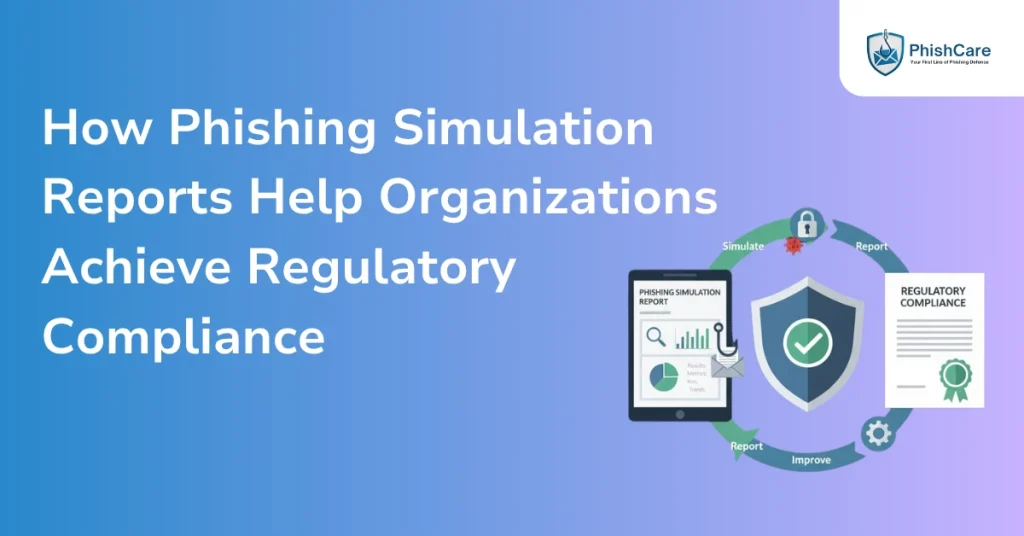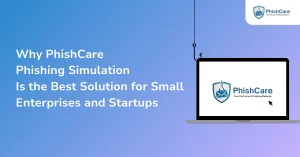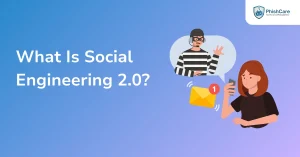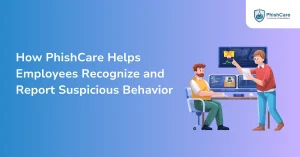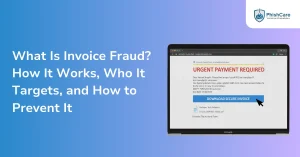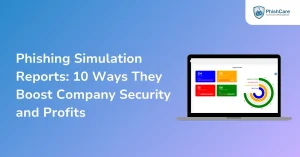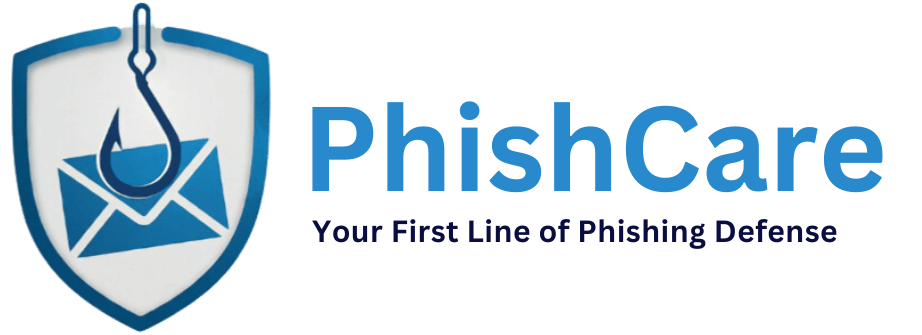Cybersecurity and regulatory compliance go hand in hand, yet maintaining both remains a constant challenge for many organizations. With over 90% of cyberattacks originating from phishing emails, even a single employee’s oversight can lead to serious data breaches, financial damage, and compliance violations. To tackle this, businesses are turning to phishing simulation services, a smart, data-driven way to strengthen human defenses, improve awareness, and document compliance readiness.
PhishCare is one such advanced phishing simulation platform that helps companies test employee awareness, uncover vulnerabilities, and generate comprehensive simulation reports. These detailed reports not only track progress but also serve as valuable evidence for compliance with standards like GDPR, HIPAA, ISO 27001 Certification, and other data protection frameworks. By integrating phishing simulations into regular security practices, organizations can enhance their resilience and foster a workplace culture of continuous cyber vigilance.
1. Employees Are the First Line of Defense
Every employee plays a critical role in preventing cyber incidents. Through cyber security awareness training, employees learn to identify phishy emails, fake websites, and social engineering attempts.
Running phishing attack simulations using a reliable phishing simulation service like PhishCare helps reinforce this awareness. The data from these simulations is compiled into reports that reveal how employees respond to threats, showing who opened, clicked, or reported a simulated phishing message. These insights empower organizations to create focused anti-phishing training for employees and strengthen overall security posture.
2. Reduces Risk of Data Breaches
Data breaches are not only costly but can also lead to severe regulatory penalties. Regular email phishing tests and simulated phishing campaigns help organizations identify weaknesses before attackers do.
By leveraging a phishing simulation service, companies can analyze user susceptibility trends, detect vulnerable departments, and take corrective action. This proactive approach significantly reduces the likelihood of data loss or unauthorized access, key concerns under regulations like GDPR and HIPAA.
The resulting reports serve as documented evidence that your organization is continuously improving its cyber hygiene.
3. Measurable Cybersecurity Awareness
Compliance isn’t just about policies, as it’s about proof. Phishing simulation reports provide measurable indicators of employee performance and progress.
For instance, PhishCare’s phishing simulation tool tracks metrics such as:
- Click rates on simulated phishing links
- Number of employees reporting suspicious emails
- Department-wise performance
- Year-over-year improvement
These quantifiable results are invaluable for compliance audits, showcasing that your organization has an active, measurable phishing prevention training and awareness program in place.
How PhishCare Help Organizations Achieve Regulatory Compliance

- Customizable Templates
- Awareness Module
- Assessment Test
- Comprehensive Tracking
- Graphical Dashboard Access
- Campaign Report
- Custom Domain Integration
4. Supporting Regulatory Compliance
Meeting international cybersecurity standards requires ongoing employee education. Regulatory frameworks such as GDPR, HIPAA, ISO 27001, and SOC 2 emphasize the importance of human-centric security controls and documented training efforts.
Phishing simulation reports offer precisely that evidence that employees are regularly trained and evaluated through phishing simulation services. These reports demonstrate compliance by showing:
- Continuous security awareness initiatives
- Audit trails of training and test results
- Risk analysis and mitigation plans
- Reduction in phishing susceptibility over time
Auditors and regulators can easily verify these records, helping your organization maintain compliance without scrambling for documentation during audits.
5. Reinforces a Security-First Culture
A strong compliance strategy goes hand in hand with a strong security culture. When employees participate in corporate phishing awareness programs and see their progress reflected in reports, they become more engaged and responsible.
Regular phishing resilience training and workplace phishing awareness initiatives encourage everyone, from interns to executives, to think before they click. Over time, this builds a culture where cybersecurity becomes second nature, not an afterthought.
6. Identifying Weak Points Before Attackers Do
Phishing simulations reveal gaps that traditional security tools can’t. They identify individuals or teams most likely to fall for fake phishing scam emails or faker email messages.
The insights from these simulations allow organizations to create custom training plans through employee phishing awareness training, focusing on areas of highest risk. In turn, this reduces the chance of real breaches that could lead to compliance violations or financial penalties.
7. Phishing Reports as a Compliance Audit Resource
Phishing simulation reports are an excellent resource during compliance audits. They serve as documented proof that the organization has conducted phishing training for organizations, evaluated results, and improved employee readiness.
Many auditors now consider phishing awareness results as part of their compliance checks, particularly under ISO 27001’s A.7.2.2 Security Awareness and Training control. Having structured reports from a trusted managed phishing simulation service like PhishCare simplifies this process immensely.
8. Enabling Continuous Improvement
Compliance isn’t static, as it evolves with threats and regulatory expectations. Phishing simulation services allow for ongoing evaluation through periodic tests and updated reporting.
These continuous cycles of cybersecurity phishing tests and feedback loops ensure that your organization remains aligned with best practices and compliance mandates. Reports generated over time can show consistent improvements, demonstrating a commitment to sustained security excellence.
9. Enhancing Management Oversight
CISOs, compliance officers, and IT leaders rely on metrics to make informed decisions. Phishing reports provide exactly that: data-driven visibility into how the human layer performs under simulated attack conditions.
Detailed reporting from phishing simulation services enables leaders to allocate resources, justify training budgets, and prioritize high-risk areas. This aligns with compliance expectations around risk management and continuous monitoring.
10. Documented Proof of Training and Awareness
Regulatory frameworks often require proof that employees receive security awareness training. Phishing simulation tools like PhishCare automatically generate audit-ready reports documenting who participated, how they performed, and what follow-up actions were taken.
These reports fulfill compliance documentation needs for regulations such as GDPR Article 32 and HIPAA Security Rule 164.308, which both emphasize ongoing risk management and training.
Phishing Simulation Process with PhishCare
To ensure compliance-driven outcomes, PhishCare follows a structured and data-centric simulation process.
1. Define Scope and Objectives
The first step is to outline what the simulation aims to achieve, whether it’s testing awareness, compliance readiness, or specific phishing scenarios.
2. Baseline Security Assessment
PhishCare conducts a baseline security and awareness training assessment to establish current performance levels. This step identifies areas that require focused improvement.
3. Custom Scenario Design
Using industry-relevant templates, PhishCare creates custom phishing emails, landing pages, and attack vectors tailored to your organization’s environment.
4. Simulated Phishing Campaign
A controlled phishing attack simulation is launched to assess real-time employee reactions. The system captures data such as open rates, clicks, and report actions.
5. Data Collection and Analysis
All results are analyzed in-depth to identify behavioral patterns, vulnerability hotspots, and department-specific weaknesses.
6. After-Sales Reporting and Support
Once the campaign concludes, PhishCare provides a detailed phishing risk assessment report along with recommendations for phishing prevention training and awareness reinforcement. This ongoing support ensures organizations remain compliant while continually improving security posture.
PhishCare – Your Partner in Compliance and Awareness
In a regulatory environment where accountability is everything, PhishCare stands out as the ultimate phishing simulation tool. Developed by CyberSapiens, it allows organizations to run tailored simulated phishing campaigns, assess vulnerabilities, and generate compliance-ready reports.
From email phishing tests to phishing resilience training, PhishCare helps you meet GDPR, HIPAA, and ISO requirements while strengthening employee awareness. With its automated tracking, data analysis, and phishing risk assessments, PhishCare transforms compliance into a continuous process of improvement and protection.
If your organization wants to stay audit-ready, secure, and aware, PhishCare is the trusted solution to make compliance effortless.
FAQs: How Phishing Simulation Reports Help Organizations Achieve Regulatory Compliance
1. How do phishing simulation reports support regulatory compliance?
Phishing simulation reports provide measurable proof that your organization conducts regular phishing attack simulations and cyber security awareness training, helping meet compliance requirements like GDPR, HIPAA, and ISO 27001.
2. Why are employees called the first line of defense in phishing resilience training?
Employees are often the first to encounter phishing attempts. Phishing resilience training teaches them to spot and report threats, preventing costly data breaches before they occur.
3. How can phishing simulation services help with GDPR and ISO audits?
By documenting email phishing tests, phishing risk assessments, and anti-phishing training for employees, companies can demonstrate proactive security practices during audits, meeting GDPR and ISO compliance standards.
4. What kind of data is included in a phishing simulation report?
A detailed report from a phishing simulation service includes employee response rates, click-through metrics, reporting behavior, and overall improvement after simulated phishing campaign
5. Why should businesses use managed phishing simulation services like PhishCare?
A managed phishing simulation service such as PhishCare offers expert-designed simulations, tailored reports, and post-assessment support, helping organizations stay compliant and continuously improve awareness.
